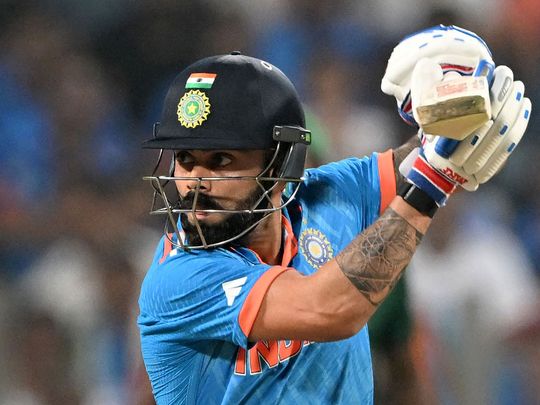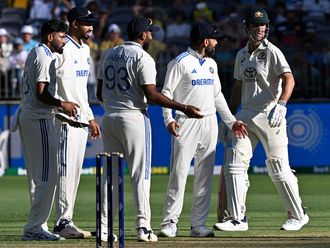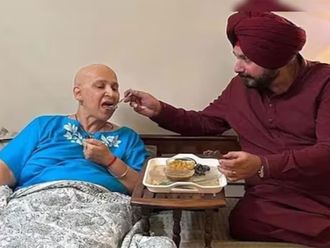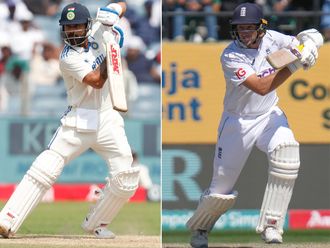
King of Chases. Chase master. These are monikers bestowed on Virat Kohli. And with good reason. The Indian batter is brilliant at masterminding a chase in white-ball cricket. He’s been so successful that India supporters always harbour hope of a win so long as Kohli is at the crease.
India’s win in Pune over Bangladesh in the Cricket World Cup on Thursday is a prime example. The innings in pursuit of Australia’s target in India’s opener in Chennai was even better, considering that the team was tottering at 2 runs for 3 wickets. But the best in recent times was at the Twenty20 World Cup, when Kohli revived a near-dead chase in the company of Hardik Pandya to turn the tables of Pakistan in Melbourne last year.
There are many more in the past. Sri Lanka’s spearhead Lasith Malinga and Australian pacer Nathan Coulter-Nile will remember the assaults as Kohli hurried to finish games. Finishing games, Kohli is very good at it. He may not be a designated finisher, but he can bat deep to finish games.
Chase: The Kohli way
Kohli takes pride in it and doesn’t miss a chance to expound his pet strategy whenever critics mention his tardy strike rate. He’s unperturbed and unapologetic about his slow starts as he’s supremely confident of lifting the scoring rate in the later stages. That’s the Kohli way of planning a chase.
It’s actually very simple. Kohli takes time to play himself in. Plays the balls into the gaps, runs sharp singles, and turns singles into twos with hard running. And never let a loose ball go unpunished. A four and a six in between keeps his strike rate around run-a-ball. It’s a low-risk strategy, and it keeps the target in sight.
It has worked for Kohli, and he’s delivered several fine wins for India. The chase of Bangladesh’s total wasn’t arduous: captain Rohit Sharma had launched it with a blistering attack, and young Shubman Gill built on it. By the time Kohli arrived at the crease, India were motoring to the target.
Not just that. Kohli received some early presents. Two no-balls resulted in free hits that he put away for a four and a six. Admittedly, it calmed him down to play his natural game. So unhurriedly, he went about the business of picking singles and twos while Gill swatted a few sixes. The required run rate was under control, and all Kohli had to do was to keep the chase going without alarms.
read more
At the end of the 38th over, Kohli was 73 and a century looked possible. But only 28 runs were required for an Indian victory, and he needed 27 of them. Here’s where KL Rahul played a brilliant hand in giving the strike to Kohli. Not even a wide from Hasan Mahmud could distract Kohli, who continued to pick off twos and retained strike with singles off the last ball of overs. There were only one four and a six before the glory shot to seal his century and the win.
How does he do it? The calibration of the chase was so precise that he didn’t have to hurry at all, even when the century loomed. It’s almost like a calculator stuck in his head; like an accountant, he adds all the small change to make a big sum.
That was century No. 48, which puts Kohli one away from Sachin Tendulkar’s ODI record. Four more league games are left in the World Cup so that record could be Kohli’s soon. It will put India in pole position to win their third World Cup.









